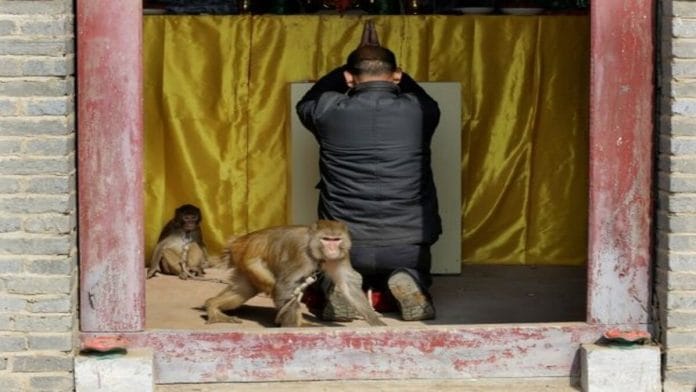Speculation on Ram, Krishna, Gautam Buddha & Kalki
The importance of discourse on Ram, Krishna, Gautam Buddha & Kalki is more relevant today than ever because of them being subjects of present Indian civilizational discourse. They are deified by Hindus & reckoned internationally. They are shaping majoritarian politics of India and are a part of mainstream national debate. They are politically relevant as well because their temples & legacy is used to mobilize masses, stimulate religious sentiments, refurbish Indian civilizational identity & for charity.
Ram is invoked for Ram Rajya (ideal governance) & Maryada Purushottam (the ideal human), Krishna is known for Ras Leela (Indian romanticism) & warriorhood, Buddha is known for dhamma rooted in sacrifice, wisdom & existential harmony whereas Kalki is an awaited divine warrior & a redeemer of Hinduism. All four deities & theological figures are backed by religious treatises such as Ramayana, Bhagavad Gita, Buddhists texts such as Pali cannons & Kalki Purana. All four have international reverence and a global organizational presence (such as ISCKON). Although, speculation on them is always riddled with inaccuracy and debate. Religious scholars don’t have unanimity on the time scales of their presence, geographies & values associated with them.
The politics on Ram drove Hindus & Ram bhaktas towards establishing Ram Mandir in Ayodhya, Gyanvyapi mosque is said to be a Krishna Temple, Sambhal mosque is said be a Kalki Temple & Shambhala is thought to be Sambhal in UP, Buddha is said to be Dhul-Kifl of Islam by Sufis. Speculation comes along on them from all corners. Ram is also said be the Ramses who was seated in Egypt. Krishna is said to be the Pharoah with the flute, Ajatashatru’s chariots were the same as Pharoah’s chariots, & Kalki has been erroneously appropriated to be as Islamic messenger Muhammed by a group of Muslim scholars (Islamic research foundation) or Kalki as the awaited eschatological figure in Islam who is the Mehdi by Shias who study comparative theology. Buddhists also await Meitrei who is also compared with Kalki. Many Hindu scholars don’t consider Buddha as 9th Avatar of Vishnu & ask for Ashoka the great or Prithviraj Chauhan to be considered the 9th Avatar. All these arguments have a lot of speculative elements. It’s fallacious & logically far-fetched to consider comparative theology based on speculation as relevant today for real life or logically deducible.
Eschatology & speculation
The religion’s science for future known as Eschatology may have a forbearing on human societies as long as it may look logical or get real. It may be the case for cultural supremacists who happen to be iconoclasts of other cultures at the same time to misappropriate religious figures, geographies & events. Eschatology may be driving American foreign policy when US backed NATO vowed to protect GCC from the eschatological dark banners of Iraq, Syria & Afghanistan, or Ghazwa al Hind is reckoned as a national security issue by the establishments in India & Pakistan. So, the eschatology has a destabilizing effect if it is enacted by war machines, & if it actualizes then its an indicator of a nearing doom & the failure of the existing system. So, the question is for whom it may actualize? It will ignite civilizational conflict due to revisionism driven against populations, races, spaces and identities. So, speculative theology is as anomalous as an assumption of an accusation. It may bring more misery & loss if culture is misunderstood with religion, & cultural supremacism taken as a good thing. Such an approach makes people eccentric, illogical & conflict-driven. It is an inevitable reality if it’s in the psyche of the masses to be supremacists alone.
These pieces are being published as they have been received – they have not been edited/fact-checked by ThePrint.


